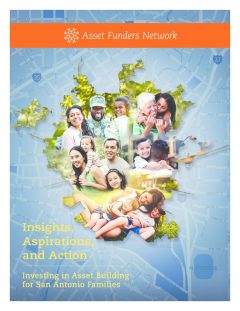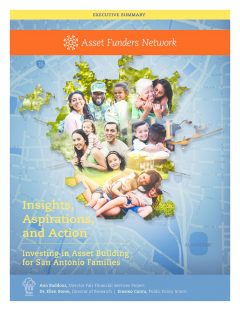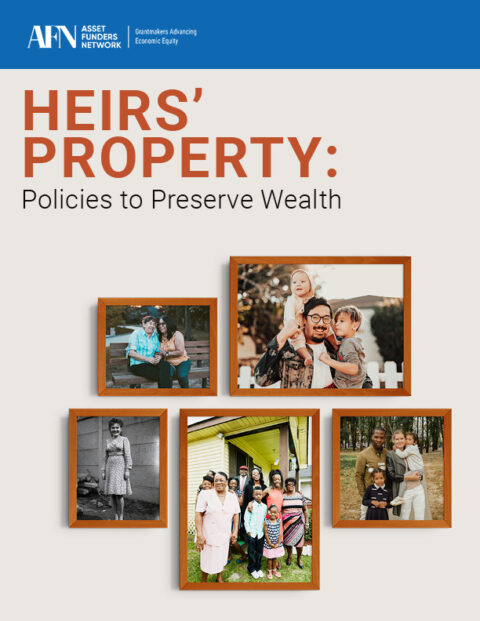The study released by the San Antonio Area Asset Funders Network (San Antonio Area AFN) with lead support from JPMorgan Chase reveals significant pockets of poverty in San Antonio that must be addressed by expanding asset building strategies for low-income families. Asset building is the ability to gather resources that will help people spend, save, borrow, and plan for economic advancement and unexpected hard times. The study, developed by Texas Appleseed and supported by a steering committee of regional foundations and banks, along with additional backing from the San Antonio Area Foundation, Texas Capital Bank and Wells Fargo, draws on demographic, economic, education and healthcare data to describe San Antonio’s low-income families.
Key Statistics from the Study:
- With 35 percent of Hispanic female and 27 percent of African American female heads of household living in poverty, an economic crisis exists in our city that demands a significant, coordinated response.
- Women of all ethnicities and African American men are the least economically mobile populations in San Antonio.
- San Antonio families have lower median credit scores, higher delinquent debts and limited savings compared to the US. African American and Hispanic residents consistently have worse financial health outcomes compared to White residents, except when it comes to student debt.
- Most low-income San Antonio renters spend more than one-third of their income on housing, making them housing burdened, and evictions are increasing.
- Four zip codes (78202, 78207, 78208, 78211) were identified as “high need”, indicating worse than average outcomes for two or more data categories such as poverty, unemployment, uninsured, income, and education.
Key Recommendations in the Study:
The report proposes recommendations to enhance asset building resources and opportunities for high need populations. Recommendations are grouped under six categories in the report:
- Foster integration of asset building and social safety net services (e.g., Financial Empowerment Centers, improved referral systems, convenings on asset building)
- Focus on highest need geographies and populations (e.g., investments in high need zip codes, community engagement in grantmaking)
- Enhance safety net for low-income families (e.g., re-examine funder guidelines for services, wrap-around services for single mothers pursuing education/training, legal services for debt claims and eviction cases)
- Expand access to products and services that support asset building and asset preservation (e.g., financial coaching, low-cost financial services, alternatives to tax time loans, reduction of subprime services)
- Support local policy work to ensure public, nonprofit and philanthropic efforts best complement each other (e.g., workforce development that prioritizes long-term financial well-being, engagement with City of San Antonio’s equity budgeting process and local affordable housing efforts)
- Offer organizational support to nonprofits to enhance long-term viability and outcomes (provide long-term funding and share common evaluations, invest in nonprofits’ organizational and staff capacity)
More information on the media release can be found here.
The San Antonio Express-News ran an editorial on the report. Click here to read.



